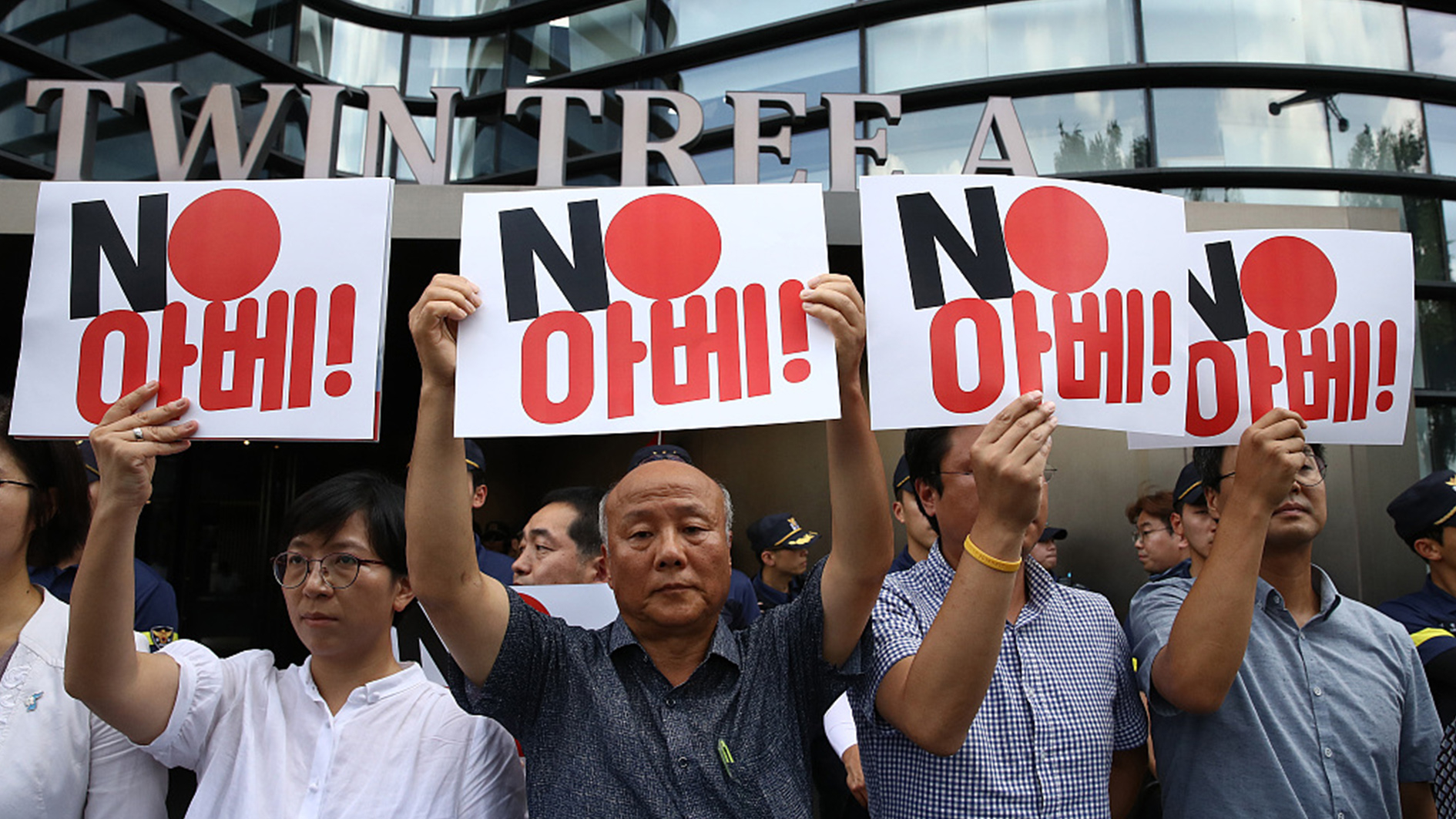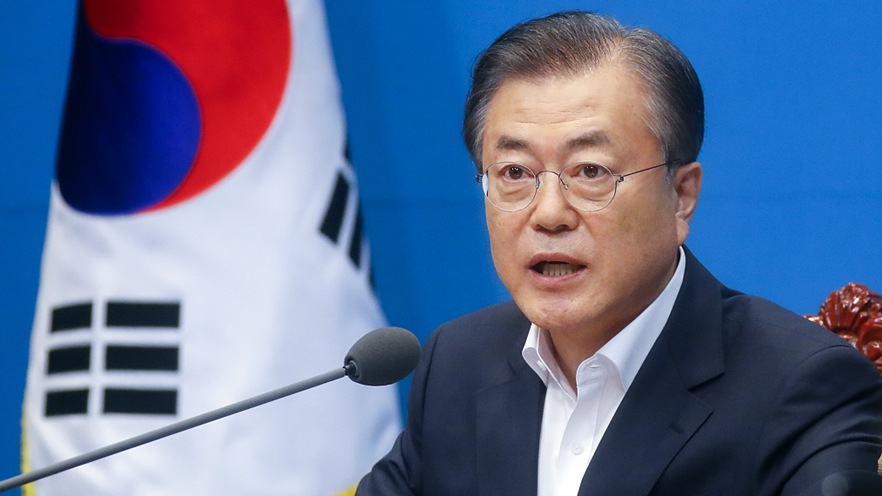

South Korea and Japan are locked in a trade spat, and it's not just about imports and exports.
Japan's cabinet on Friday approved a measure to remove South Korea from a so-called "white list" of favored trading countries.
With the move, Japanese exports to South Korea must undergo more stringent procedures and paperwork, likely causing upheaval in bilateral trade. The new measures go in effect on August 28.
South Korea quickly responded by removing Japan from its own "white list." It's also considering other measures to resolve the issue.
"We will step up our preparations to file a complaint with the World Trade Organization (WTO) as the reinforcement of Japan's export restrictions violates WTO rules," said South Korean finance minister Hong Nam-ki.
Japan hinted at the decision to downgrade South Korea's trade status last month when it imposed restrictions on the export of high-tech materials used by South Korean manufacturers of memory chips. Tokyo claimed the move was necessary in the interest of national security because of the risk of these materials getting into the hands of the DPRK for use in its weapons program.
"From the standpoint of Japan's national security, this revision was necessary to manage Japan's export system properly. For Japan-South Korea relations, there have been negative movements from the South Korean side, and it is in a severe situation," said Japanese chief cabinet secretary Yoshihide Suga.
South Korea denies the claim and says Japan's move is in retaliation to a recent South Korean court's decision granting compensation to laborers forced to work for Japanese companies during World War Two.

South Korean President Moon Jae-in speaks during an irregular cabinet meeting at the presidential Blue House in Seoul, South Korea, August 2, 2019. /VCG Photo
The two nations share a long, complex history dating back centuries. More recently, historical and territorial disagreements have cast a shadow over relations, which were restored under a 1965 pact that restored diplomatic relations.
Both Tokyo and Seoul also share a common goal in seeking a denuclearized Korean Peninsula. That's forced the United States to jump into the fray and mediate. But Washington's response has, thus far, been mostly lukewarm, instead hoping the two can reach an agreement on their own.
"I was told that the United States has great concerns about this situation and it would play a role in helping resolve the matter," said South Korean Foreign Minister Kang Kyung-wha after a meeting with her U.S. and Japanese counterparts on the sidelines of a regional security forum in Thailand on Friday.
Figures show South Korea imported roughly 11 billion U.S. dollars' worth of semiconductor parts and equipment from Japan last year. That's about 20 percent of all South Korean imports from its neighbor.
Companies like Samsung Electronics and SK Hynix provide about two-thirds of all global semiconductors and memory chips, supplying firms like Apple and Huawei for use in their smartphones.
Ultimately, consumers will bear the brunt of the costs. The result will lead to disruptions in the global supply chain.

Copyright © 2018 CGTN. Beijing ICP prepared NO.16065310-3
Copyright © 2018 CGTN. Beijing ICP prepared NO.16065310-3